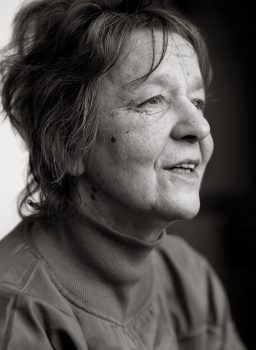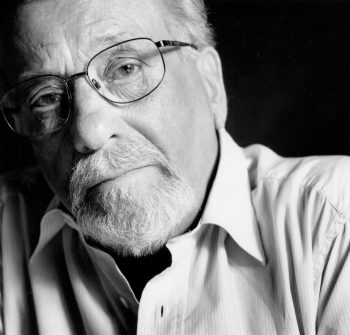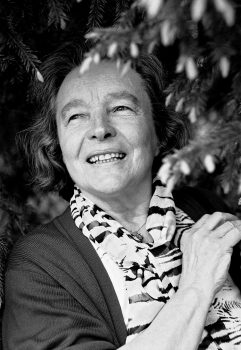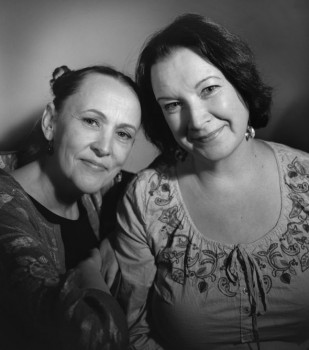Search results for "2010/02/2011/04/2009/10/writing-and-power"
Talking to Andrei
30 June 1998 | Fiction, poetry
Poems from Efter att ha tillbringat en natt bland hästar (‘After spending a night among horses’, Söderströms, 1997)
The snow is whirling over the roses of the inner courtyard
The snow is whirling over the roses of the inner courtyard.
Did not bring boots or scarf with me, leaf
through books, don’t know what to do with all this light!
You would not approve of the colours.
It’s too impressive, Andrei Arsenyevich, there is too
much, too much of everything!
You swapped your wings for an air balloon, a clumsy
contraption twined together from ropes and rags, I remember it well.
Earlier, I had a lot and didn’t remember. Hard
to keep to the point. Hard to keep to the point.
Hope to get back. Hope to get back to the principle
of the wings. Fact remains: the cold preserved
the rose garden last night. ‘The zone is a zone, the zone is life,
and a person may either perish or survive as
he makes his way through this life. Whether he manages it or
not depends on his sense of own worth.’* A hare
almost leapt into the vestibule here at the Foundation,
mottled against the snow; in the hare’s diary it’s October, after all.
You seem to be in quite a malignant humour,
and it is possible that none of this interests you.
On the other hand, you quite often complain yourself.
I’m writing because you are dead and because I woke up
last spring in my hotel facing the street in Benidorm to that wonderful
high twittering. One ought not to constantly say sorry, one ought
not to constantly say thank you, one ought to say thank you. Lake Mälaren like lead down there. The rest is white and red. More…
The report
30 September 1984 | Archives online, Fiction, Prose
A short story from Kesä ja keski-ikäinen nainen (‘Summer and the middle-aged woman’) Introduction by Margareta N. Deschner
Dear Colleague,
First of all, I want to thank you and your wife for the pleasant evening I and my wife had in your summer villa in August. Briitta (since we are old acquaintances: with two i’s and two t’s, remember?) especially wants me to mention that she will never forget the half moon climbing the hill behind your sauna, surprising us with its speed. The next time we looked it was half-way up the sky! Without doubt, your fine tequila had something to do with the matter, one shouldn’t forget that. Even so, it was quite a show, just like the time a bunch of us guys had gone skiing and you bragged that you had arranged for the barn to catch fire. I hope that you and your wife – I mean Alli – will be able to visit us next winter and taste a superb Mallorca red wine called Comas, which we brought home. It is by far the best red I have ever tasted and indecently cheap to boot. I hope you will come soon. The wine won’t keep indefinitely, as you well know. We’ll save it for you. So thanks again.
Out of my hands
10 November 2011 | Articles, Non-fiction
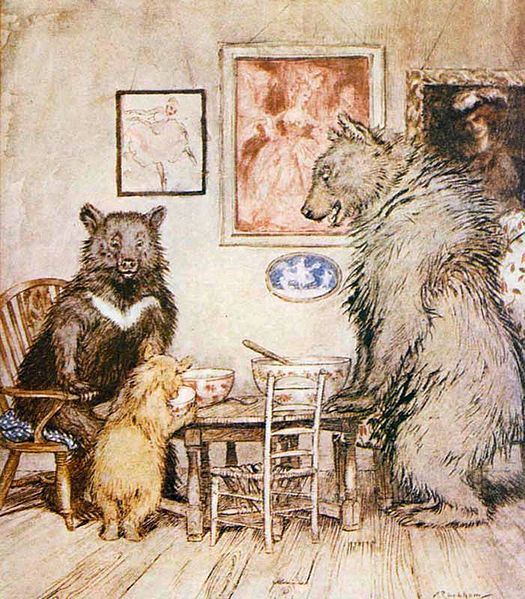
Who's been eating my porridge? From ‘English Fairy Tales’ by Flora Annie Steel (1918), illustrated by Arthur Rackham. The Project Gutenberg e-Book
In the classic fairy-tale, on finding their belongings were not as they had left them, the three bears exclaimed: ‘Who’s been eating my porridge?’ When our technology correspondent Teemu Manninen found someone else’s underlinings in the electronic text he was reading, he wondered: ‘Who’s been tampering with my ebook?’ Which led him to ponder how similar books and their virtual counterparts really are – and could his ebook really be called ‘his’?
A few months ago I was reading an ebook on my iPad when I came across an underlined passage. For a moment I felt strangely disturbed. My initial thought was that I had not made the underlining, and therefore this had to be a glitch, an error in the computer program that was the book, which meant that there was something wrong with my book. What made this thought disturbing was the realisation that the kinds of harm that can befall digital books – and the measures that one can take to prevent them – are no longer ‘in my hands’: that the book is no longer physical, but virtual. More…
Get out of my Face(book)!
23 June 2010 | Columns, Non-fiction, Tales of a journalist
 Much is made of the importance of Facebook and the other social media. But what are they, asks journalist and self-confessed internet cynic Jyrki Lehtola in his regular ‘Journalist’s Tales’ column; and, more important, is there any point to them?
Much is made of the importance of Facebook and the other social media. But what are they, asks journalist and self-confessed internet cynic Jyrki Lehtola in his regular ‘Journalist’s Tales’ column; and, more important, is there any point to them?
This journal and this text appear only on the internet, and you can comment upon the elegant style of this text, as well as its fascinating content, at the bottom of the piece. If worst comes to worst, the apathy it arouses can even give rise to debate.
Does all that mean that I’m a part of… the social media? And if so, could someone tell me what social media mean and how I can get out of here? More…


